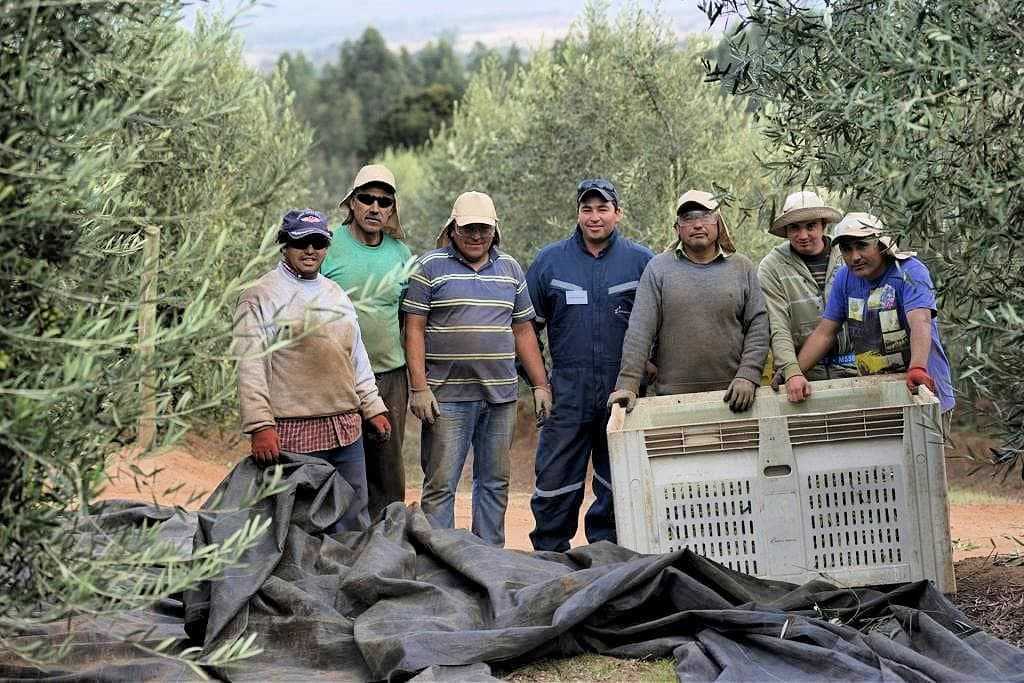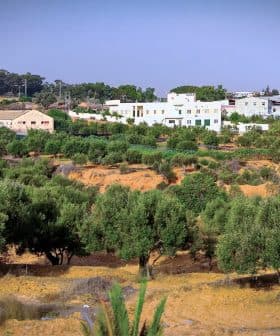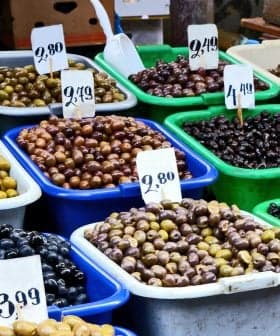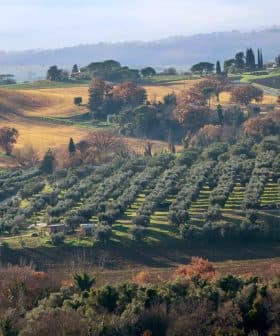Olive Oil Producers in Chile Hail a Record Yield
Chile produced 25,500 tons of olive oil in the 2020/21 crop year. But despite the bumper crop, exports fell substantially.
 Photo: Olivos del Sur
Photo: Olivos del Sur Chile’s olive oil producers expect a record-breaking yield in 2021, with a 13-percent increase in production compared to 2020. Despite challenges related to the Covid-19 pandemic, producers like Olivos del Sur and Agrícola Pobeña have managed to exceed their production expectations and maintain the quality of their olive oils for export.
After a promising start to the 2021 harvest, olive oil producers in Chile expect a record-breaking yield.
According to data provided by ChileOliva, the national olive oil producers’ association, South America’s second-largest producer yielded 25,500 tons of olive oil, a 13-percent increase compared with 2020.
We came from two very critical years due to the drought that affects us, but this year we had more water and we managed to obtain fruit with better caliber.
Additionally, production may continue to grow in Chile as more olive trees are planted. There are currently 22,152 hectares of olive groves in the country. ChileOliva said the surface area of olives planted will increase, but this is highly dependent on water availability.
See Also:2021 Harvest UpdatesIsmael Heiremans, the agro-industrial manager, of Olivos del Sur, one of the country’s largest producers, told Olive Oil Times that the harvest was slow but steady, highly conditioned by rules introduced to curb the spread of the Covid-19 pandemic.
“Each year we aim to complete the harvest of 1,450 hectares within the expected times, ensuring the quality and safety of the final product, obtaining the chemical and organoleptic qualities that our product requires,” he said. “Procedures were strict and rigorously adhered to with the complexities presented by Covid-19.”
The fairly new working conditions and the availability of workers for manual harvesting played a critical role in determining how the harvest progressed. After 66 days, Olivos del Sur produced 2,815,000 liters of extra virgin olive oil.
Once the olives had been harvested and transformed, the next step for the producer was to bottle and label them for export.
“We ship our oil to more than 12 countries worldwide, annually,” Claudio Lovazzano, the company’s marketing manager, told Olive Oil Times. “Brazil, the U.S. and Canada are the main destinations. It’s hard work to get our product in perfect condition for our customers.”
According to ChileOliva, olive oil exports have not fared as well as production during the pandemic. The association reported a 43-percent decrease in exports due to challenges associated with logistics, planning and transportation during the Covid-19 pandemic.
Despite the setback to exports, Chile remains a competitive olive oil exporter to the United States, Brazil, Germany and Mexico, ChileOliva added.
Situated about 50 kilometers south of Olivos del Sur, Fernando Carrasco, the general manager of Olivos Ruta del Sol, harvested a new plantation of Arbequina and Arbosana olives.
“Our main challenge this year is developing a new team based in the commune of Pumanque, Colchagua Valley, where our entire production operation has been since 2020,” he told Olive Oil Times.

Photo: Agrícola Pobeña
Carrasco added that the company had implemented new remote maintenance systems for the production line, which enables his team to operate two sets of harvesting equipment simultaneously.
In turn, this increased the volume of olives arriving at the mill and ensures the high quality of olive oil produced by Olivos Ruta del Sol, he added.
Carrasco said that this year had been a more intensive one for the company. He set a harvest end date of June 25 to obtain greener oils and protect the product from frost, which can damage olive oil quality if the olives are left unharvested too late into the season. (June is the beginning of the winter in the Southern Hemisphere.)
According to Carrasco, Olivos Ruta del Sol produced 410,000 liters of olive oil this year, which was 17-percent higher than he expected.
Also located in Chile’s fertile central valley, back to the north of Olivos Ruta del Sol, the producers behind Agrícola Pobeña also enjoyed a fruitful harvest. However, it was one that started later than anticipated.
“This year everything was delayed for weather reasons, with rare rain at the end of January, and February with few sunny days and with days of fog, which delayed everything by a couple of weeks,” José Manuel Reyes, the company’s commercial manager, told Olive Oil Times.
“We came from two very critical years due to the drought that affects us, but this year we had more water and we managed to obtain fruit with better caliber,” he added. “This allowed us to obtain more kilograms of fruit.”
Agrícola Pobeña exports the majority of the olive oil produced during the harvest, along with supplying the local market. As a result, one of the company’s key challenges is working on distribution year-round.
“Once the harvest is over, the whole team begins to work with a view to the 2022 harvest, in anticipation of obtaining good olive oil next season,” Manuel Reyes said. “Overall, we are happy with the work our whole team has done throughout the year, which is reflected in the olive oils produced this year.”
The year started with Manuel Reyes anticipating a decrease of 15-percent compared with last year. However, despite the slow start, the company produced more olive oil than anticipated.
“This is the reflection of having been able to irrigate in a good way, which leaves us very happy since, despite the greater volume, the oils kept intact all their qualities and intensities,” he concluded.
Share this article









